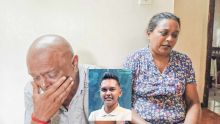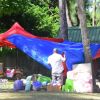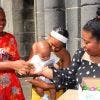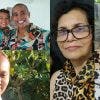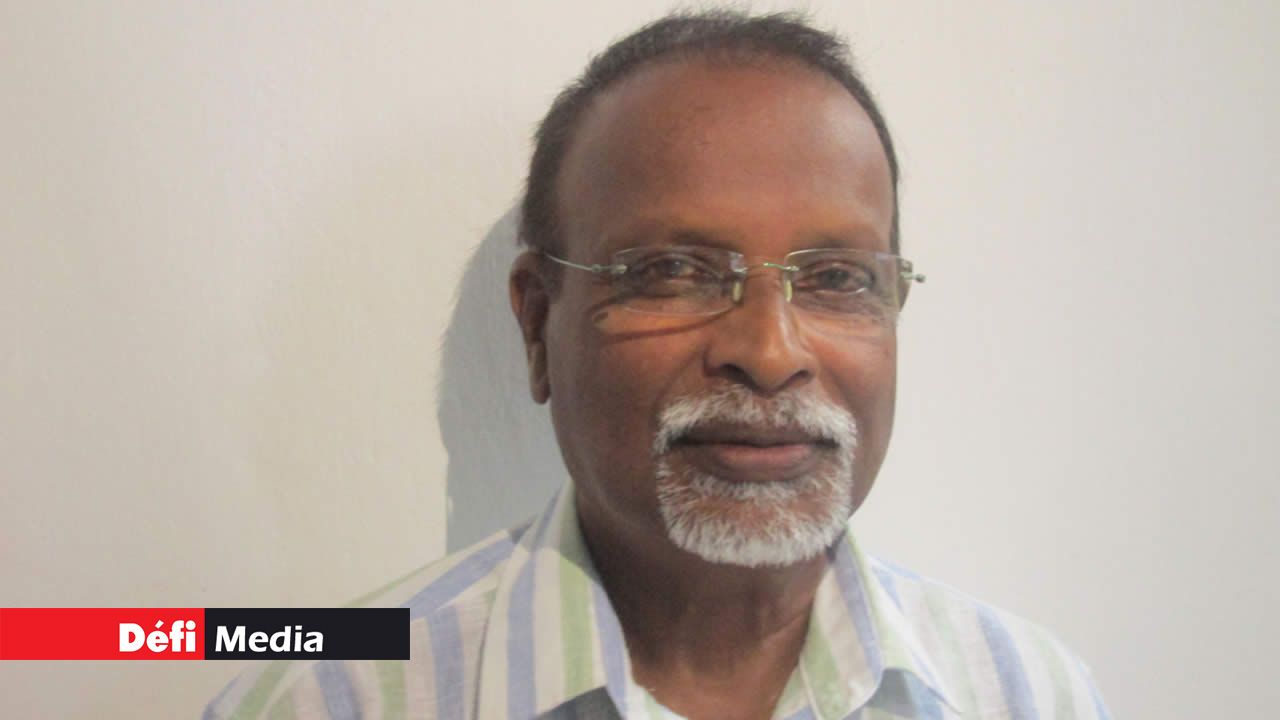
La Conférence se tient du 25 au 26 novembre à Abuja, Nigéria. Les experts vont se pencher sur les droits de l’homme des personnes âgées en Afrique. DIS-MOI y est un partenaire en sa capacité de membre du Steering Committee de SGA -Africa.
Publicité
L'objectif est de fournir une plate-forme pour un ensemble diversifié d'intervenants dans la région, y compris les gouvernements, les institutions nationales des droits de l'homme, les organisations de la société civile, les milieux universitaires, les personnes âgées, les organisations régionales ainsi que les institutions intergouvernementales et les organisations des Nations unies pour discuter des droits de l'homme des personnes âgées en Afrique, et de permettre une meilleure compréhension des progrès réalisés et les défis à relever pour garantir ces droits, ainsi que l'échange d'expériences liées et les leçons apprises. La Conférence se félicite de la participation des états membres non-africains et est ouvert à un public mondial.
La Conférence régionale d'experts sert un débat en cours entre les sessions de travail du Groupe de travail à composition non-limitée et est d'une grande importance pour stimuler les discussions à la prochaine 11e session du Groupe de travail, qui se tiendra du 6 au 9 avril 2020, au le siège des Nations Unies, à New York.
La Conférence se penchera également sur le Protocole à la Charte africaine relatifs aux Droits des Personnes agées.
Press release : High level meeting in Abuja to discuss rights of older people
Abuja, Nigeria: 25th November, 2019: The human rights situation of older persons in Africa become the focus of a high-level conference that begins on Monday in Nigeria’s capital city, Abuja.
According to Dr Emem Omokaro Ph.D, Co-Chair, Stakeholders Group on Ageing in Africa (SGA) and Executive Director, Dave Omokaro Foundation, Nigeria, the conference aims to discuss the human rights situation of older persons in Africa, and to enable a better understanding of progress made and challenges faced in ensuring those rights. The conference will also create a platform to exchange experiences and lessons learned in ageing development.
She said the meeting will facilitate a platform for a diverse set of stakeholders in the region, including Governments, National Human Rights Institutions, UN organisations, civil society organizations, academia, older persons as well as international and regional organizations to dialogue on the future of the ageing development in the continent.
“Experiences of older persons and the particular context of old age is still not sufficiently addressed from a human rights perspective,” added Dr Emem.
According to Roseline Kihumba, Co-Chair, SGA Africa and International & Regional Policies Coordinator, HelpAge International, the promotion and protection of all human rights and fundamental freedoms is important to achieve a society of all ages, in which older persons participate fully and without discrimination and on the basis of equality as enshrined in the sustainable development goals that all African states signed in September 2015 in New York, USA.
“Discrimination of older people exists everywhere and there is an urgent need to eliminate structural discrimination by promoting law and policy reforms, improved accountability mechanism and institutional reforms in favour of older persons considering their vulnerabilities, potential and talents and increase longevity,” she said.
Ms Kihumba added that the UN General Assembly Open-Ended Working Group, which was established in 2010 to strengthen the protection of the human rights of older persons by steering discussion on a new global convention for the rights of older persons, African members states, human rights institutions, UN organisations and civil society organisations need to be substantially involved in the discussions for the process to accelerate the development and adoption of a convention for the rights of older persons.
In 2016, added Ms Kihumba, the Heads of Governments and State adopted the Protocol to the African Charter on Human and Peoples' Rights on the Rights of Older Persons (or simply the Protocol) in Addis Ababa, Ethiopia.
“Articles of the Protocol is the product of consultations and builds on the 2002 African Union Policy Framework and Plan of Action on Ageing as well the United Nations Principles on Older Persons, which address independence, participation, care, self-fulfillment and dignity,” she said.
So far, 14 of the 54 African countries have signed the Protocol and only two of them, namely the Lesotho and Benin Republic have ratified. For the AU Protocol to come into force, 15 ratifications are needed. Further delay by the African Member States to ratify the Protocol is a big setback for older people across the continent and goes against the spirit of the Protocol’s adoption as older women and men in Africa continue to face discrimination, abuse, neglect and violence in social, economic, cultural and political spheres.
Vijay Naraidoo, President, DIS-MOI Commission for the Rights of Older Persons, Mauritius, as well as a member of Steering Committee of the SGA-Africa, said older women and men in Africa largely continue to experience systemic inequality.
“As things stand today, long lives in Africa are fraught with vulnerability, diseases and multiple dimensional and persistent poverty and thus deprive them of autonomy and independence,” said Naraidoo.
According to the UN, in 2017, Africa was home to over 69 million older persons accounting for 7.1 per cent of the global total.
In a global comparison, Africa may appear the ‘youngest continent,’ however, between 2017 and 2050, the number of older Africans is expected to grow with a projected 229 per cent increase to 226 million. Dr Emem said the pace of growth of the older population of Africa projected for the 2040s is faster than any other region has experienced worldwide. “Population ageing is therefore poised to become a major issue in Africa, and it is essential to integrate this mega-trend within the larger process of development in the region,” she said.
Vijay Naraidoo

Notre service WhatsApp. Vous êtes témoins d`un événement d`actualité ou d`une scène insolite? Envoyez-nous vos photos ou vidéos sur le 5 259 82 00 !














